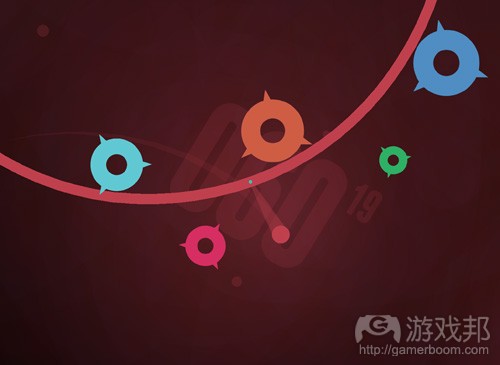开发者应推行跨平台战略 不仅局限于iOS设备
作者:Carter Dotson
在《急速枢纽》最近的发布会上(在芝加哥的Emporium Arcade Bar),我意外地再次遇到了《地下王国》背后的开发商。
在与该团队交谈时,他们一直抱怨着很难将自己的游戏推向其它平台。
2D创造和探索游戏能够支持跨平台多人游戏(即Mac和iOS版本),但是因为该工作室的技术限制,所以移植到Android和PC平台仍具有很大的挑战。
这一话题在这个庆祝游戏(特别是在第一天就准备好执行跨平台机制)发行的场合好像极具讽刺。
展示
《急速枢纽》计划在8月1日正式发行于iOS上,但是在Emporium中,其开发者宣称这款游戏不只是面向iPad,还会出现在计算机上,并与更大的投影机连接在一起从而让玩家可以使用PS3控制器进行游戏,甚至他们还会将其带到Indie City街机上,从而进一步推广这款游戏。
该聚会不只是庆祝游戏的首席开发者Whitaker Trebella的突出创造,同时也是为了借此将游戏推向大众。
虽然这算是一种免费推广游戏的方式,但这也算是一种糟糕的展示。
当Trebella决定使用Unity时,一切都是有可能的。
教训
他这么做并不是为了让一些醉汉去玩自己的游戏——他从自己的第一款游戏《Polymer》中吸取了教训。
当我因为148Apps(游戏邦注:一家应用评测网站)的某一功能与他交谈时,他特别提到自从发行了《Polymer》后,他便因为这款游戏只能出现在iOS平台上而受到巨大的打击。
他补充道:“主要原因竟是因为我不知道如何将游戏从Objective-C移植到其它平台上。”
“在创造了《Polymer》之后,我一直计划着进行Unity开发,因为它能够帮助我们实现简单的移植。现在的《急速枢纽》便是基于Unity,所以我便能够面向更广泛的平台去发行游戏。我对自己所做出的这一选择感到自豪。”
这一决定为他带来了巨大的利益:游戏已经赶上了他的第一款游戏,并计划着移植到PC和Mac上,还在Greenlight上拥有一个自己的页面——特别是在过一段时间后还将在Android平台上发行。
似乎比起他的第一款游戏,这款游戏取得了更大的利益,其中跨平台更是扮演着非常重要的角色。
他所吸取的教训其实很简单:为了提高游戏的成功几率,最好尽早开始考虑跨平台策略。
事实上,创造跨平台游戏存在许多方法,所以你又有何理由忽视它们呢?
众多选择
Unity当然是个很重要的帮手:它能够将游戏导出到各种平台。对于像手机和PC这样的开放市场来说,这便是很大的优势,能够为自己今后的发展留下巨大的机遇。
如果不想使用Unity的话,你还有其它跨平台工具选择。Havok也推出了免费版本的Anarchy引擎,并提供了他们在游戏产业中的相关经验,所以这算是一个很有利的选择。
基于Unreal Engine 4或UE3,更多开发者可以在面向公开的PC和主机发行同时无需考虑各种手机硬件。基于Adobe Air的Flash也是一大选择。
甚至从iOS跳跃到另一个平台,如Android也是越来越多人的选择。
可移植性真的非常重要,不管是《Avernum》还是《终极缠绕》都具有这一特性。
Marmalade便始终与Pocket Gems合作致力于游戏的移植中。只要在一个贸易展中走一圈,你便会发现几乎没有一家游戏公司不想将自己的iOS游戏移植到Android上。
甚至连谷歌也拥有将Java代码移植到Objective-C上的工具。
值得庆祝的理由
如果开发者能够执行跨平台机制的方式越多,那么我们就有更多理由在此庆祝。
我认为,开发者不应该满足于一个平台策略。为什么不通过跨越多个平台而接触更多用户以最大限度地发挥游戏性能呢?
面对着各种跨平台游戏,为什么不考虑好好利用它们呢?
也许基于Unity创造一款休闲三消游戏太过大材小用,但还有许多其它只面向手机平台的游戏非常适合PC,如果它们也有移植的简单方法,那就不要犹豫了!
(本文为游戏邦/gamerboom.com编译,拒绝任何不保留版权的转载,如需转载请联系:游戏邦)
Stateside: It’s time to say bye bye to the era of iOS-only games
by Carter Dotson
At the Pivvot launch party recently at Emporium Arcade Bar in Chicago, I had the serendipity to again run into the developer behind the game Deepworld.
The studio wasn’t there for the party, though the team was soon introduced to the rest of the Chicago gaming scene that showed up – with a cameo from Vlambeer’s Rami Ismail, about to leave town.
I got to talking to the team and they lamented that they were having difficulty with getting their game on to other platforms.
The 2D crafting and exploration game supports cross-platform multiplayer between Mac and iOS versions, but getting on to Android and PC was a challenge due to the technology the studio was using.
This seemed a rather ironic topic of conversation at an event designed to celebrate the launch of a game that specifically showed off the benefits of being ready to go multiplatform from day one.
Platform play
Pivvot launched on iOS on 1 August, but at Emporium, the game was being demoed on not just iPads, but on a computer hooked up to a large projector that spectators could play with a PS3 controller, as well as on the Indie City arcade machine, which continues to feature Pivvot.
The event served not just as a way to celebrate the climax of months of work for lead developer Whitaker Trebella, but to also get the game in the hands of the general public at a happening Chicago nightspot.
It helps that the machine is free-to-play in a world of token-operated games, but still, it’s a heck of a showcase.
And it was all possible because Trebella decided to use Unity.
Regrets, I had a few
He didn’t just do it so that inebriated strangers could play his game, no – he learned from the regrets he had from his first game, Polymer.
When I spoke to him for the purposes of a feature on 148Apps, he specifically mentioned that ever since releasing Polymer, he’d “been frustrated that it’s only on iOS.”
“The main reason for that is simply because I don’t know how to port a game from Objective-C onto other platforms,” he added.
“After Polymer, I always planned on going into Unity development because of how easy it makes porting. Now that Pivvot is in Unity, my options are wide open for launching on various platforms. I’m very glad I made the choice to go with Unity.”
This decision could be one that pays off financially for him: the game’s already catching up to his first release and with PC/Mac versions planned and a Greenlight page started things could get even better – especially with the possibility for an Android release down the road also on the cards.
The game seems quite likely to be a financial improvement over his first title, and multiplatform will likely play a huge role.
The lesson is simple: be ready to go with a multiplatform strategy early on in order to increase a game’s chance of success.
And really, considering that there are so many ways to make a game multiplatform, why ignore them?
Options open
Unity, of course, is a huge player, and with good reason: it can export to every relevant platform. For open markets like mobile and PC, that’s a huge plus, and leaves open opportunities down the road.
Fear that Unity might get too big for its britches? Well, other cross-platform tools are coming out. Havok’s got its Anarchy engine which has launched with a free version, and given its experience in the gaming industry, it has to be at least seriously considered as a rvial option.
Unreal’s not as big on mobile as it should be, but with Unreal Engine 4 in the works, perhaps UE3 in full could become open to more developers who could utilise it on lesser mobile hardware while keeping open PC and console distribution. Flash with Adobe Air remains an option too.
Even jumping from iOS to just one other platform such as Android has an increasing number of options.
Apportable is one of the more prominent ones, with games using its SDK ranging from Avernum to Zen Bound.
Marmalade’s been working with Pocket Gems to port games over. Heck, just wander down the aisles of a trade show and you’ll find it hard not to trip over a company promising a way to port iOS games to Android – it certainly seemed that way at the last couple GDCs.
Even Google has a tool for porting Java code to Objective-C!
Reasons to be cheerful
The number of ways a developer can go multiplatform is only increasing in number and the reasons for doing so are increasing as well.
In my view, developers really shouldn’t have much confidence in the one platform strategy right now. Why not hedge the bets of a game’s performance by trying to reach as much of an audience as possible across multiple platforms?
Considering there are an abundance of tools designed to male this possible, instead of timely and costly port jobs, why not take advantage of them if the title is a good fit for another platform?
Maybe building a casual match-3 game in Unity is overkill, but there’s plenty of other titles that are mobile-only that would be great fits on PC, if only they were easily-equipped to make the jump.
So why not be ready for it from day one?(source:pocketgamer)








































 闽公网安备35020302001549号
闽公网安备35020302001549号